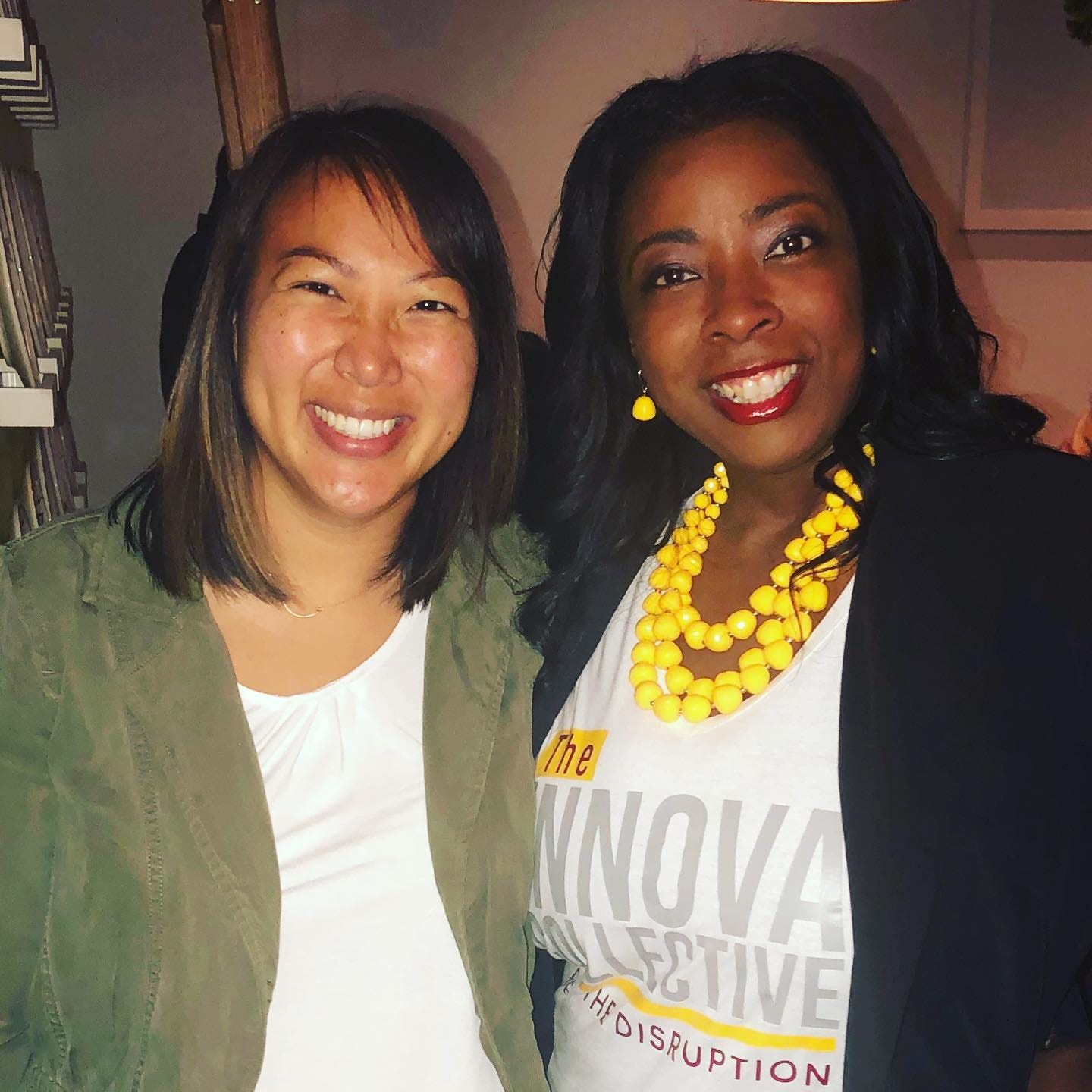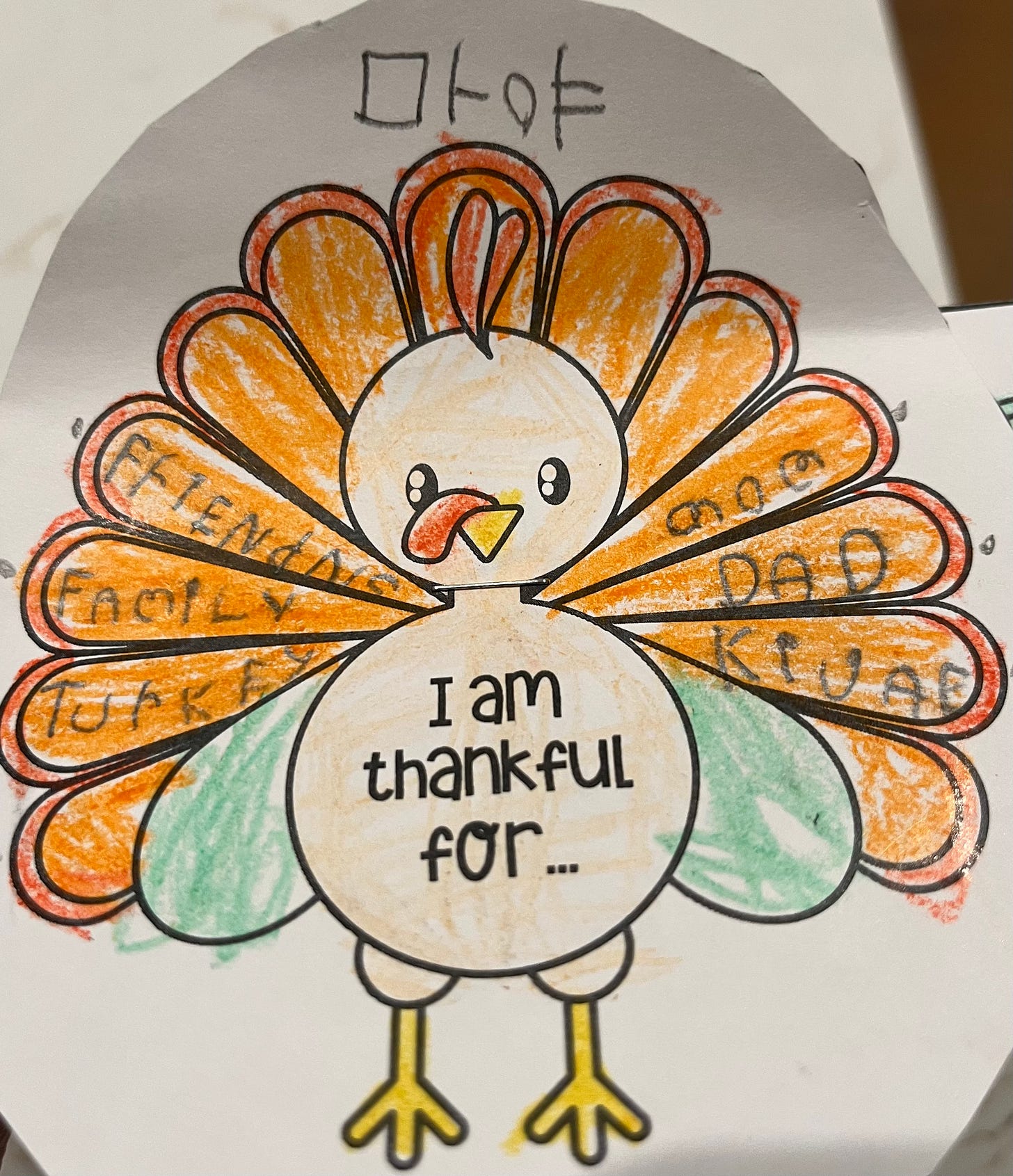If you missed Part 1, catch up here.
If you’re a high-achieving female with a heart for justice, odds are good that you’ll wind up in education reform. You’ll find yourself wearing cardigans, spending hours on slides, and saying things like “ping me” and “put a pin in it”. On the upside, the expensed dinners are nice. On the downside, you’re left wondering if you ever have a real impact on students. This was my life for over a decade, and it brought me two people who changed me forever.
It’s 2014. I’m at one of those work trainings where you’re supposed to bring your “whole self”, but you don’t have a true friendship with anyone in the room. This is where instinct saved me. I have a gift for sensing when people may be excluded, and I tend to reach out to them. (Is it a gift, or is it emotional hypervigilance from always standing out as a kid?) Anyway, I was the lone Asian in the room, and I chose to sit with the lone Black woman. To this day, it’s one of the best decisions of my life.
In true corporate culture form, we made cutesy name tents to “break the ice”. Emily, Anne, Sarah, probably another Emily, Jennifer…and Beyoncé. That’s right. I discovered that I’d sat next to one Anashay Lanae, who informed us all that we could call her Beyoncé. We laughed nervously, but I’d find out years later that she wasn’t kidding. Her other handles included Bill Gates and André 3000. Huh?
Anashay preached about authenticity long before it was a buzzword. Being a poet and musician, she called these different facets of herself her “dimensions of dopeness”. She was nerdy enough to secure a multi-million dollar, multi-year contract for our company (Gates), musical enough to have recorded multiple songs (André), and business-savvy enough for both her children to have their own LLCs (Bey and her strategy for generational wealth). You know when you witness true greatness. Prince was born to create and perform art. Steph Curry was born to ball. And Anashay was born to show the world the power of authenticity.
There is a special intelligence that isn’t much valued or recognized by our society, and Anashay has it. She truly sees people. She saw how I hid my pain by throwing myself into work and deflecting. I’d been hiding my whole life. Anashay wouldn’t let me. She told me to find a Korean therapist, or she’d find one for me. Years before I even thought about trying on a hanbok, Anashay had a vision of our families together, proud in our ethnic attire. Beyond all my striving for attachment and success, she saw my authenticity.
She poured love and courage into me for three years. In 2017, we both began to see the blooms from her planted seeds. Our organization of around 400 people hired a Korean woman, UnSuk. I knew the Korean alphabet (proper name: Hangul), and so I knew how to pronounce her name:
She, of course, said her name this way on every call. This didn’t stop most of our workplace from blithely calling her “un-suck” or other botched variations. At the time, I thought she was gracious for not correcting everyone. Now I see that she was a brand new hire and didn’t feel able to advocate for herself. Think about it. You just got hired, and is your first move pointedly correcting everyone on every call? How many of us would do that?
She remained “un-suck” until I saw her name written in Hangul, and my suspicion was confirmed. We’d all been saying her name wrong. Want to know the punchline? She had been hired to advance our company’s diversity, equity, and inclusion initiative. We sat on the diversity council together, along with the CEO and a lot of higher ups. On UnSuk’s birthday, I emailed the council and announced that our birthday gift to her would be saying her name correctly.
Friends, that’s how low the bar was in 2017. Did you ever hear of Ashley or Heather getting that for a birthday present? No ma’am. They got Barbie Dreamhouses or roller skates. I thought I was doing something so heroic, but I look back and cringe at my apologetic tone in my email, how magnanimous I thought the gesture was, and how grateful she was to me. Despite how minimal this gesture seems to me now, I love this story because it shows my first step toward being a proud Korean.
By 2020, the entire world was changing, and so was I. There’s a lot of talk right now about self-care and manifesting and individualism, but I believe the truth is that we need each other. We aren’t able to white-knuckle our way to health and wholeness alone. Anashay saw me before I saw myself. I had the bravery to stand up for UnSuk before I had the bravery to stand up for myself. We taught each other, healed with each other, and grew our authenticity together.
Things came full circle when I asked UnSuk to help name our second child, a boy. UnSuk and her mother guided us on Korean spelling, pronunciation, and meaning. While grateful for the help, I also felt powerless and frustrated that I lacked the knowledge for this meaningful experience. I can’t define being a cultural orphan more clearly than this: I couldn’t even name my own child in the language of our heritage.
Our runner-up name? Miles. No one would mispronounce his name or make fun of it. A nice, trendy but not too trendy name. I waffled until our newborn boy was three days old. During my internal struggle with whether to acquiesce to the easier choice of a white name or stand proud as a Korean (see again: attachment vs authenticity), my husband unwittingly got input from his entire family.
There are 23 people on the Gordon family thread. (One person turns it green, and yes, I am married to that person. We do a lot for love.) There was a flurry of name suggestions - Eli, Noah, something Biblical. The Emily who wanted to fit in would have chosen a name that continued those family traditions. But I had my own family tradition to begin.
It was day three, and I was done dithering. We named our baby Ki Jae, which translates as “foundation for a new beginning”.
He is our little new beginning, a proud stamp to the world that we’re unashamed to be a Korean family. One of the first reactions was from the discharge nurse, with a dismissive “that’s weird”. People mishear it, misspell it, say it wrong all the time, but the people who love us will care enough to get it right.
Want to know something amazing? Maya writes her name in Hangul on her papers at school, and she’s explained why to all her teachers. I will probably spend the rest of my life becoming a Korean, but my kids won’t see that. They’ll remember reading the folk tales and learning to write their names and celebrating the holidays. And that’s parenting in a nutshell, isn’t it - doing the emotional labor so that our kids will have a firmer foundation. For a new beginning.
This post is dedicated to Anashay, who told me to start writing. When I didn’t, she said we would write a blog together on our next call and hit “publish” by the end. Thank you, my sister and friend, for being the firm and loving presence that won’t let me hide anymore. I love you more than I could ever say.







Another beautiful piece (of course I came here immediately after reading Part 1).
tearing up reading this. SO GOOD.